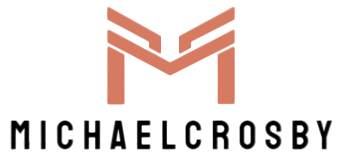Navigating the complex landscape of Medicare supplement options is an essential journey towards comprehensive healthcare coverage for individuals entering their golden years. As retirees transition from traditional health insurance plans to the realm of Medicare, they encounter a range of supplemental choices that can be both empowering and overwhelming. These supplementary plans, often referred to as Medigap policies, are designed to fill the gaps left by Original Medicare, comprising Part A (hospital insurance) and Part B (medical insurance). While Original Medicare covers a significant portion of healthcare expenses, it does not cover all aspects, such as deductibles, co-payments, and coinsurance. This is where Medicare supplement plans come into play, providing peace of mind and financial security by offering a spectrum of options to ensure that retirees can access the healthcare services they need without undue financial strain.
 Medicare supplement plans are standardized, with each plan labeled by a letter (e.g., Plan A, Plan B, etc.), and they are offered by private insurance companies. Each plan offers a different set of benefits, allowing individuals to select the one that aligns with their specific healthcare needs and budget constraints. These options vary from covering basic out-of-pocket expenses to more comprehensive coverage that includes foreign travel emergency care. The freedom to choose among these plans empowers retirees to tailor their healthcare coverage to their unique circumstances, ensuring that they receive the care they require without being overwhelmed by medical bills. Moreover, the enrollment process for Medicare supplement plans is a significant aspect of the comprehensive care journey. Understanding the initial enrollment period, during which individuals can enroll in a Medicare supplement plan without undergoing medical underwriting, is crucial. This window of opportunity, which lasts for six months after turning 65 and enrolling in Medicare Part B, guarantees access to these plans regardless of pre-existing health conditions.
Medicare supplement plans are standardized, with each plan labeled by a letter (e.g., Plan A, Plan B, etc.), and they are offered by private insurance companies. Each plan offers a different set of benefits, allowing individuals to select the one that aligns with their specific healthcare needs and budget constraints. These options vary from covering basic out-of-pocket expenses to more comprehensive coverage that includes foreign travel emergency care. The freedom to choose among these plans empowers retirees to tailor their healthcare coverage to their unique circumstances, ensuring that they receive the care they require without being overwhelmed by medical bills. Moreover, the enrollment process for Medicare supplement plans is a significant aspect of the comprehensive care journey. Understanding the initial enrollment period, during which individuals can enroll in a Medicare supplement plan without undergoing medical underwriting, is crucial. This window of opportunity, which lasts for six months after turning 65 and enrolling in Medicare Part B, guarantees access to these plans regardless of pre-existing health conditions.
However, it is important to note that missing this period may result in stricter underwriting standards and could potentially limit the available options Medicare Eligibility in Virginia. Therefore, individuals must embark on this path with a clear understanding of the enrollment timeline and the potential implications of their decisions. In conclusion, embarking on the path to comprehensive care through navigating Medicare supplement options is a vital step towards ensuring the well-being and financial security of retirees. As they transition into the realm of Medicare, supplement plans serve as invaluable tools to bridge the gaps left by Original Medicare, offering a wide array of options that cater to different healthcare needs and budget considerations. The standardized nature of these plans, coupled with the flexibility to choose, empowers individuals to craft a healthcare coverage strategy that suits their unique circumstances. Furthermore, understanding the nuances of the enrollment process is essential to make informed decisions and secure the best possible coverage.

